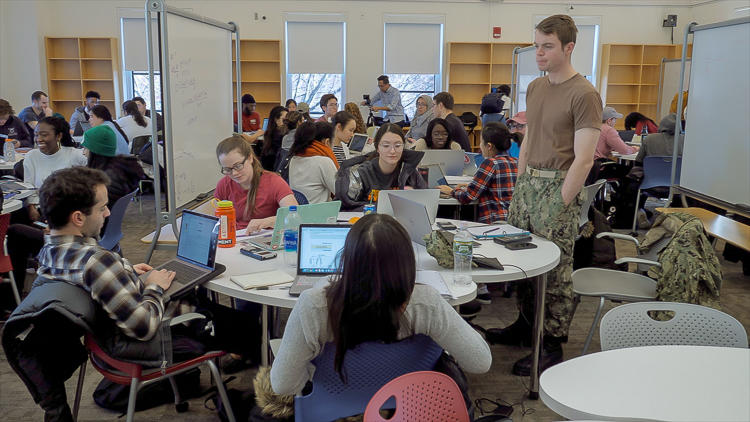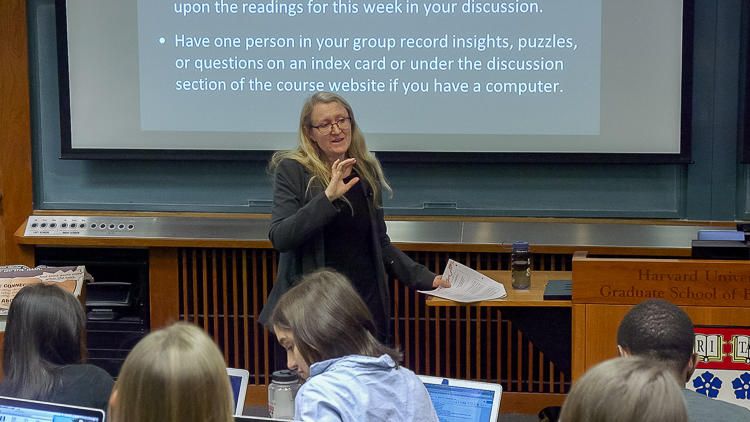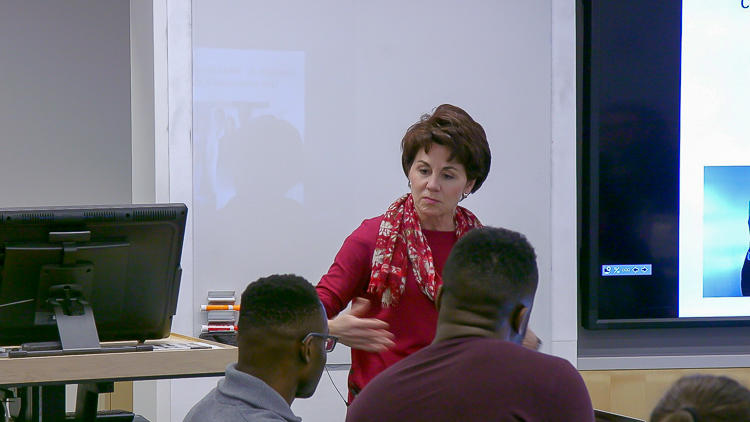Though simulations may effectively replicate real-world situations and problems, they are still just that: simulations. Accordingly, finding ways to reinforce the idea that similar situations are being experienced by real practitioners in the field becomes critical. In this video, Mandell and his teaching team discuss how their negotiations course enlists guest speakers to come speak to the class. These speakers contextualize the skills and concepts students learn and enact in class and share their first-hand experiences with similar problems in the field.
Contextualizing learning with guest speakers
Instructor
Brian Mandell, Mohamed Kamal Senior Lecturer in Negotiation and Public Policy
Student Group
Graduate
School
Harvard Kennedy School
Course
Advanced Workshop in Multiparty Negotiation and Conflict Resolution
Group Size
60 students
- Be resourceful. Get to know your colleagues within and across departments. Learn about their expertise, how it aligns with your course content, and gauge their interest in being a guest speaker.
- Seek out other members of the community who might have experienced a similar situation or problem of practice and invite them in to speak. Even if their role was adjacent to the one played by students, their expertise and perspectives are valuable.
- If colleagues or community members offer you their time and expertise, be sure to find ways to return the favor. Offer to be a guest in their classrooms or think up other creative ways to give back.
- Making content relevant to students and framing knowledge in real-word contexts can promote both learning and transfer (Kamarainen et al., 2013; Dede, 2009). Guest speakers with real-world experience could be one way to contextualize learning for students.
- A Faculty Focus blog post provides helpful tips for getting the most out of a guest speaker.
- In a post from the Into Practice blog from the Harvard Initiative for Learning and Teaching, a business professor describes his best practices for utilizing guest speakers.




